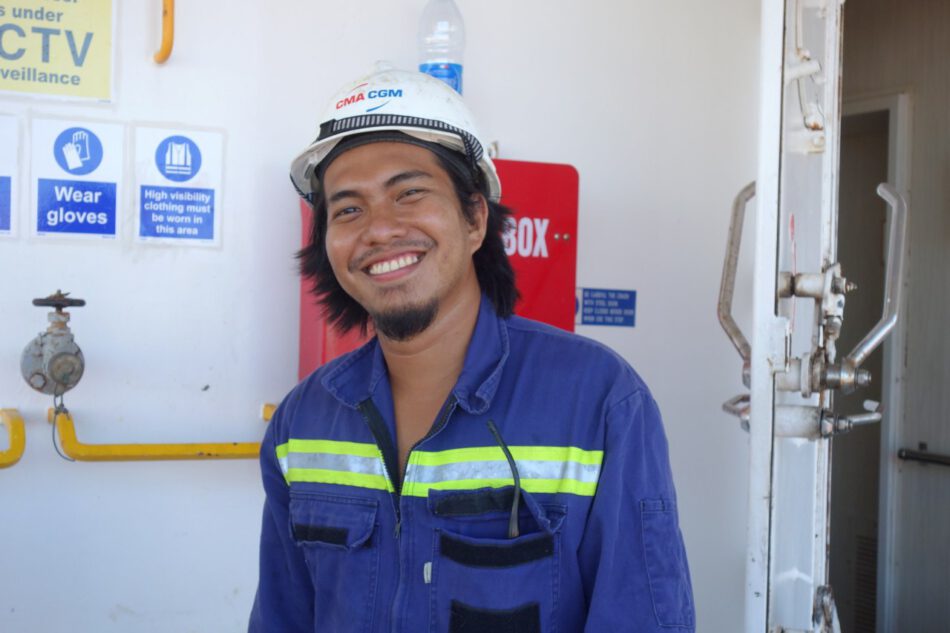This is part 2 of the Philippines series. You can find an overview here.
There are few people who have influenced me in my life as much as Pablo. It is not without reason that he appears in almost all of my lectures and trainings. Many of you know his name, but not his whole story. Now it’s time to let him speak for himself.
It is a hot rainy day. He is sitting next to me in a simple hostel in Manila, Pablo and I are in crisis talk.
The last few days have been anything but easy. Our journey together has only just begun and yet it is already on the brink. Pablo’s semester starts earlier than planned. And his family needs his support urgently right now. The world is against us and our travel plans. We ask ourselves: What will happen next with the trip? Will it go on at all? The trip – planned for months, a dream of Pablo and me. Pablo is calm, deep inside he carries an incredible strength – which has impressed me deeply for years. At the same time, I’m pretty much at the end of my rope, my nerves are hanging by a thread. Am I simply too weak? I ask myself inwardly.
But from the beginning. Exactly five years ago. Early July 2018, I set off on a great adventure. I’m traveling between my bachelor’s and master’s degrees in psychology by container ship as a passenger from France to Brazil. With my things packed, a bit of respect for the unknown and yet a lot of curiosity, I trudge on board. And there a cheerful face greets me. A young man with dark hair. Pablo. He is a seafarer and works as part of the crew on the container ship.
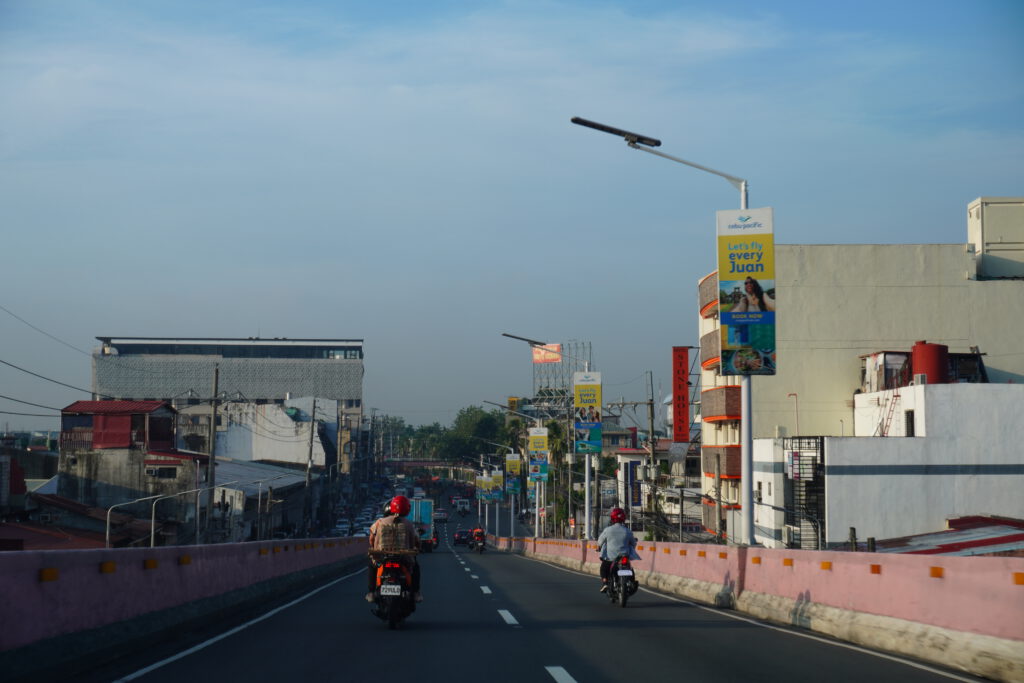
We become friends quickly and spend every free minute together for the three weeks of the crossing. He works under the toughest and most dangerous conditions on the ship. He tells me about his life in the Philippines. That he works on the ship to send all the money home to support his parents and siblings. 8 months at a time away from home, then a short break and then 8 months again on the oceans.
Five years later, I set out to see Pablo again. To see the climate crisis reality with my own eyes and feel it with my own skin. We spend the last weeks here in Manila together. Discussing, traveling, planning, crying. We share moments of joy and despair.
You’ll have to travel on without me for now, Pablo says in a clear voice on the hot rainy day. I swallow. The world needs you, and there are still so many people out there you should meet and whose voices need to be heard. I’m no more important than all the other people you’re yet to meet. I swallow again. I think: of course you are more important to me, you are closer to me – says my heart. But, sure, there are many people waiting out there who can become friends from strangers – says my head. Do I dare to travel alone as a young woman across the Philippines? Yes, I have no choice. (At that moment I don’t know yet that this sentence will run like a motto through my journey. How many people actually have no choice but to fight for life with their lives.)
Pablo has been a great inspiration for my work for years. What all have I learned from Pablo? And what can CEOs, politicians and activists in Germany learn from Pablo? Here is a small selection.
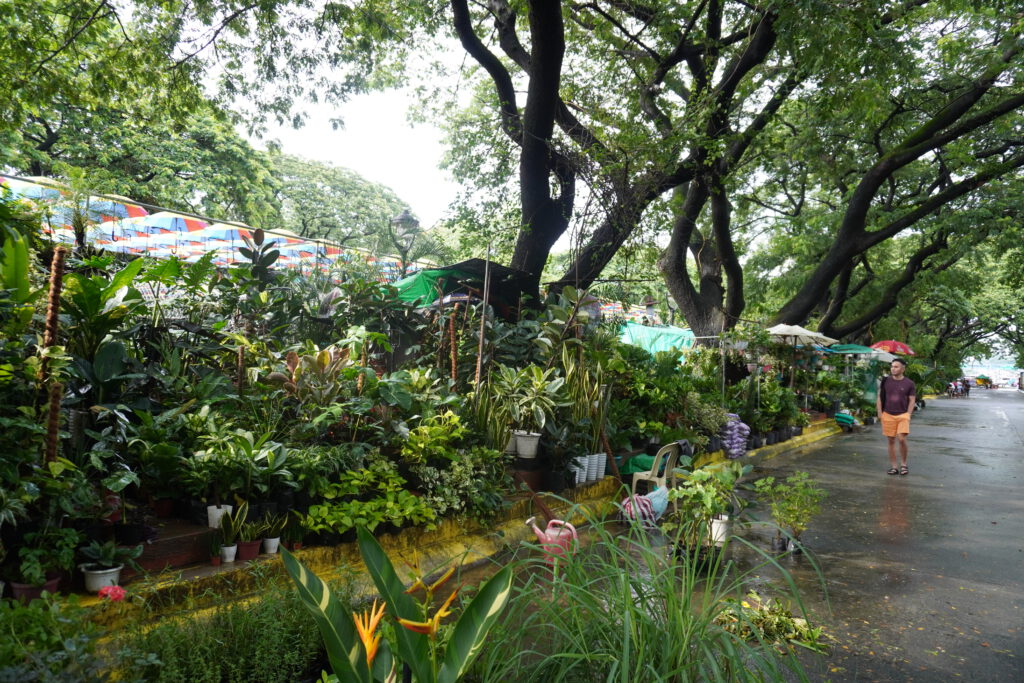
Insight #1: Climate justice is an act of friendship
We have lunch in the middle of the Atlantic. The waves make us rock our container ship from right to left. Five years ago, while we were eating, Pablo told me about how his home was repeatedly flooded by typhoons and how his few cattle on the farm were bitterly drowned, and I had to stop and swallow for a moment.
As soon as we personally know and love someone whose livelihood is existentially threatened by the climate crisis, environmental issues immediately take on a completely different meaning. The so-called psychological distance is lost.
At that moment, I realize: As an act of friendship, do I have any alternative then to turn climate protection into my career after I graduate? How could I be a better support for Pablo and all his friends and family than to tackle the causes of the climate crisis in the country where they are to be located? Where I grew up and live, and where all of us have such a great responsibility not only historically but also in the future.
We all need friends in the world with whom we can stand as a team for a good life worth living. The decision has been made: As a psychologist, I want to dedicate my life to environmental and climate protection. The conversation in the middle of the Atlantic ocean quickly moves on to another topic, but for me, this is a life decision.
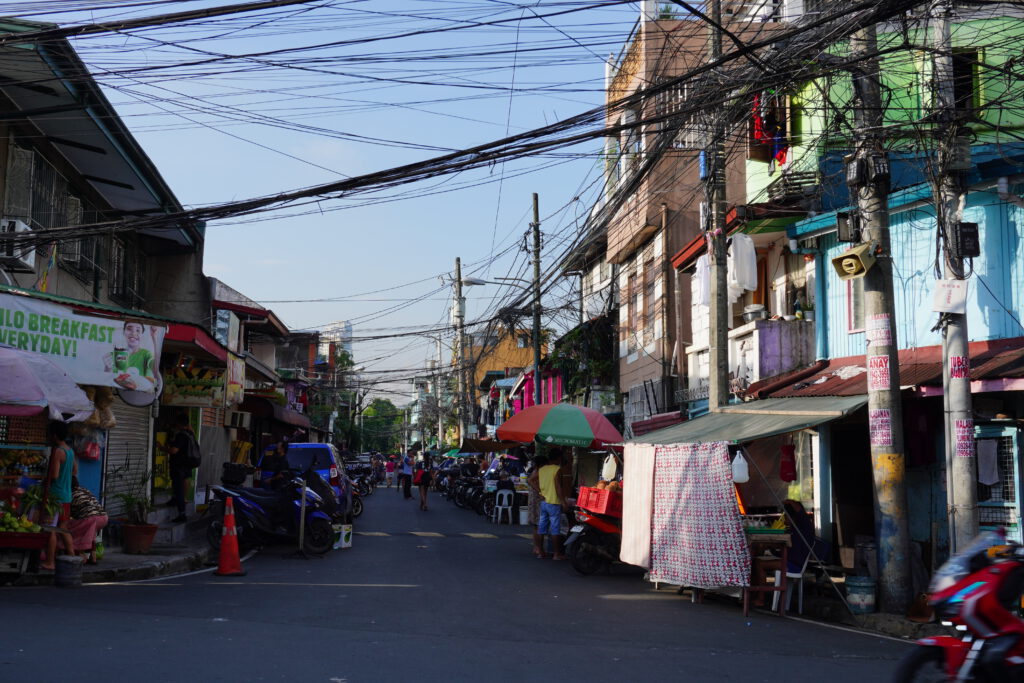
Insight #2: There’s always a reason to keep your head up
It is early in the morning in Germany, I am once again in a Zoom conversation. With Pablo, with him it’s already afternoon.
Talks with Pablo have not been so easy for me in recent years. No matter how big my worries with my family, my friendships, how big the setbacks at ClimateMind were. Pablo actually always had it harder – objectively so much harder. Even though I was often worse psychologically, I had mental crises, and I was much more often on the verge of giving up.
As a sailor, he was far away from all the people who were important to him for over 10 years. Worked under the hardest conditions around the clock and still earned just 400 euros per month. He never resigned, never hung his head. Quite the opposite: in order to build up a life in the country, he started all over again 2 years ago. Studying law in Manila was anything but a walk in the park. University every day, from Monday to Sunday. His parents are sick and quite old, he says. But younger than my parents, I think, but I know that the life expectancy in the Philippines is around 71 years and remain silent with the thought.
Recently, on a panel with Luisa Neubauer at the Kirchentag, someone asked me if it wasn’t already too late to keep to the 1.5 degree goal. I learned from Pablo: Giving up is not an option. Is it perhaps a privilege to be able to think about giving up at all? Because without enormous psychological resilience, you just go down in Pablo’s life. As a sailor, I know, says Pablo, “After every storm and every rain, a rainbow comes somewhere. You just have to look for the rainbow.
I look at the tile in the laptop. He gives me a confident, strong smile. I smile back and try to breathe deeply a small portion of his attitude. I close Zoom and take a breath.
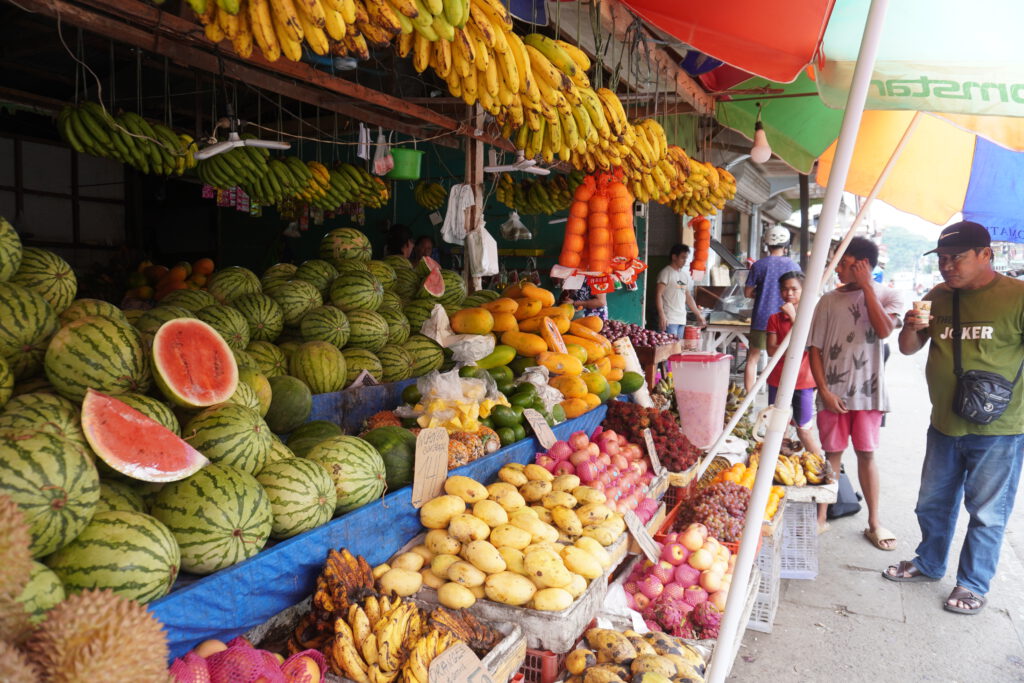
Insight #3: The inner attitude in every single action is crucial
It’s been a busy day, Pablo and I are sitting next to each other again in Manila after two weeks of traveling together through the north of the Philippines. Outside the clouds are gathering, soon it will rain again, I think. We are once again stuck in a conversation from person to person, from north to south.
In the last weeks I met so many different people from the Philippines. And many ask me: Wow, you are here for traveling, for tourism? I always try to explain the different reasons of my trip in an easy to understand way. Most of the time I fail. I learn: Almost nobody in the Philippines has ever traveled, that is, just for pleasure or inner growth from one place to another. Tourism is an absolute privilege here and globally. Shouldn’t all people in the Philippines have the right to get on a plane once – much more than people in Germany, whose next flight would be number 10, 20 or 50?
Pablo answers in the negative. It cannot be the way that all people and all countries with an environmentally harmful lifestyle follow suit. Where would we end up? We should not make the same mistakes here as in Germany. We should find a way of life here that works in harmony with people and nature. For Pablo, what matters is the inner, good attitude in every single action. Wanting to fly on vacation now because of jealousy and envy? No. Instead, he pleads for all countries to question their practices from now on and compensation should be made, loss and damage should be paid. Countries like the Philippines should be supported to keep emissions low and still improve the quality of life of the people.
I hold out for a long time. But finally I give up, he has convinced me. An eye for an eye, a tooth for a tooth cannot be a solution if we want to find global solutions. It’s about reconciliation on the global playing field. We can only do it together.
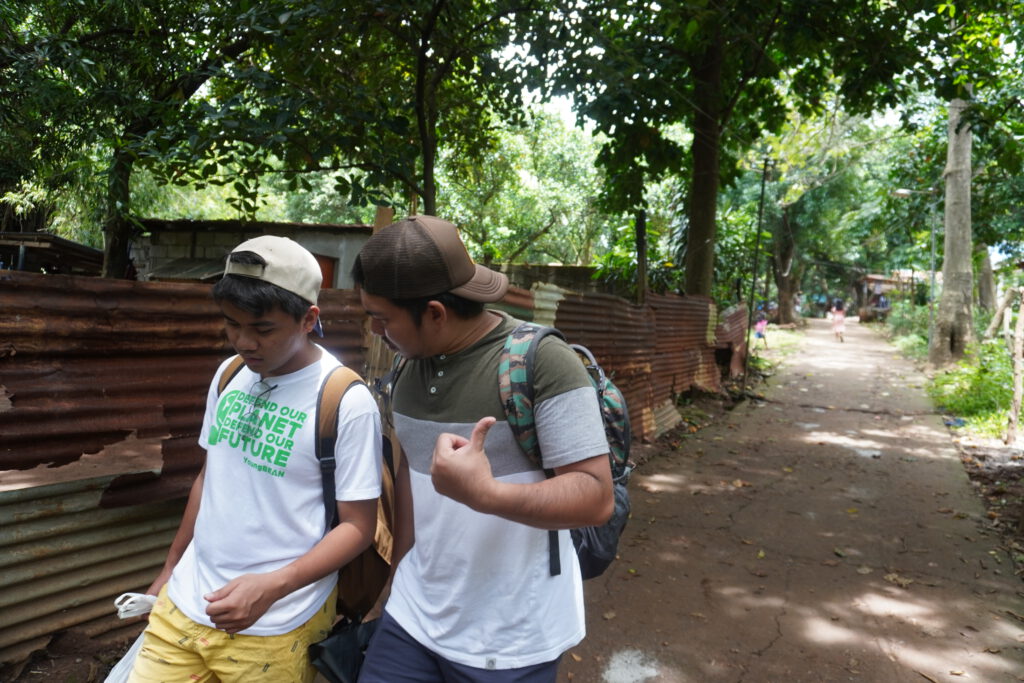
Interview with Pablo
These are just a few of the things I learned from Pablo. You want to dive deeper into Pablo’s world?
What is important to know about you and your life? Please introduce yourself briefly.
Maganda at mapagpalang araw sa inyo mula sa pitong libong isla ng Pilipinas! (A beautiful and blessed day to all of you from the seven thousand island of the Philippines!)
First and foremost, I would want to express my profound gratitude for the chance to share some ideas and life’s experiences to all of you.
I am Pablo, a Filipino, who sailed the seven seas for almost a decade. I worked for a number of major international shipping companies onboard different kind of ships including bulk cargo carriers, container ships and petrochemical tankers. I had the chance to travel the world and work with different nationalities. Currently, I am residing in the Philippines’ capital city, Manila, to study a completely different kind of profession. I’m in my third year as a law student aspiring to one day get the chance to be admitted to the Philippine Bar.
What drives you to go back to law school now?
Like many of us, I had realizations and reflections during the global Covid pandemic. 2020, my seafaring career’s final year, really took a toll on me. My stay on board was prolonged due to the restrictions and difficulties associated with moving around during the pandemic. I was unable to set foot on land or see my loved ones for more than a year. My mental health suffered as a result of them, along with the grief and stress that some of my relatives were passing away from the terrifying illness. I also suffered physically from being exposed to different chemicals beyond the normal human treshold. Lastly, I encountered a traumatic accident onboard the last vessel I worked at. These incidents became the deciding factors for me to find an alternative job and end my career as a seafarer.
I have always found lawyering as a noble and respectable profession. As a former seafarer, I have seen and experienced global injustices such as inequality, racism, exploitation, and pollution among others. This fueled my desire to pursue a career in the legal field. Aside from being able to work in my country, where I will always be with my family, I hope to be able to use my legal training to somehow make a change to society and assist others, especially my fellow workers.
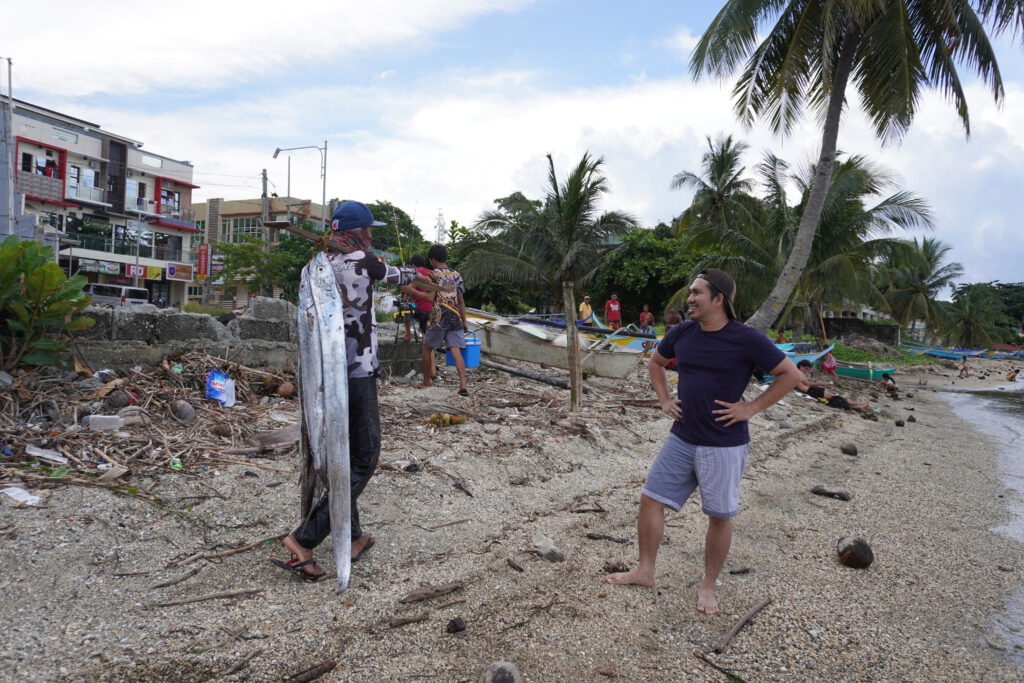
What does it mean to you to be resilient? What is resilience and what is it not?
For me, resilience is not concept of character but a way of life. Being a Filipino, I grew up in a less-than-priveleged setting where people had to literally toil to be able to survive. Blood and sweat is what allows us to have the income to provide for our family. Including the severe weather conditions and natural catastrophes, these factors are what make Filipinos adaptable to the difficulties of life. No one is strong against life’s challenges because it is always catching you unprepared.
But resilience is not being able to withstand the storm but it is the continuous willpower to always rebuild your fortress and recuperate so you can face another storm.
Resilience may be viewed negatively by others because it gives people justification not to improve themselves and continue being defeated. Unfortunately, Filipinos don’t have much choice because our country is among those which are extremely vulnerable with the Earth’s worsening conditions.
Where do you get all the strength to just keep going despite so many difficulties in life?
This is a difficult question to answer because in every phase of a person’s life, he has a different perpective of the world which also gives him a different sense of strength and priority. But to answer in the general, I would say that God and family is my strength. I was raised in a family-oriented and God-fearing household like most of the families in our country, regardless of religion and belief. In everything I do, I do it for the glory of the Lord.
Also, I will be nothing without the support and motivation of my parents. My siblings are also ever-present to cheer me up when I am down. I believe that that is my purpose. I am living this life not only for myself but also for the people whom I love and care about. They give me immense motivation to keep going because I want them to be happy. And I will strive to make them happy in whatever manner I can to at least repay them for their love and kindness to me.
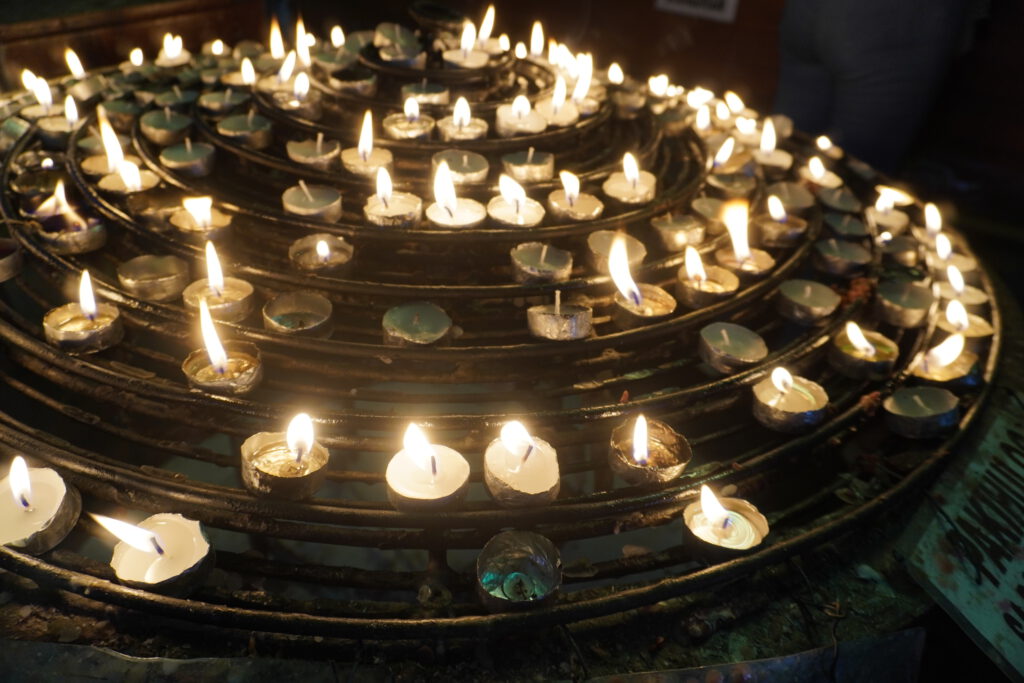
What values are important to you in life and what encounters or experiences have brought you to these values?
Humility is important to me.
Humility keeps us grounded and sensitive of everybody around us. Humility is like an achor that prevents us from being astray from our moral values. Moral values, I believe, is inherent to every person. But when the moment comes that a person get so full of success money or power, forgets about humility, then he’ll be unaware that he is slowly losing himself. There will be no injustices when there is humility. There will be no inequality because no one will be thinking they are above the others. There will be no racism when all people will humble themselves and see everyone as their equals. I guess humans’ thirst for self-glorification and competition is insatiable. Competition is not bad because it breeds improvement. But I hope people will learn to live a life of modesty and not be consumed by mundane satisfactions.
As a prospective lawyer, what does climate justice mean to you? Do you think climate justice is possible and if so, what do we need for it?
One thing comes to my mind when I hear or read Climate Justice: Accountability.
We, humans, know that the manifestations of the global climate crisis are unevenly distributed. We are all culprits as well as victims in the destruction of our planet. As early as now, let us begin to end the long-running culture of global impunity. Let the accountable answer. There’s still chance for the humanity to show their compassion to the planet who gave them everything.
The impending doom we face won’t wait for us to act. Instead of cultivating a culture of blaming and retaliation in order to deal with the issue, we should fully own up to our errors and express our serious repentance.
Repentance is accepting responsibility for our wrongdoings and pledging to make positive changes.
The Philippines and other severely afflicted nations needs Global North to restore, compensate, and indemnify them. This isn’t for their own advantage; rather, it’s for the planet we owe future generations, who should be able to enjoy it just as much as we do. The policies and conceited accords that solely enrich a select few are not necessary for the planet. What should be done is for the Global North to return what they wrongfully took from the suffering nations. This is not even a form of assistance to be thought of, but rather a reparation of damages that is actually owed to those who have already endured significant suffering.
I suppose I am not the first one to say these things but if the global leaders will keep ignoring Global South, one day they will wake up to a sobering reality that there is no more Global South to be fixed.
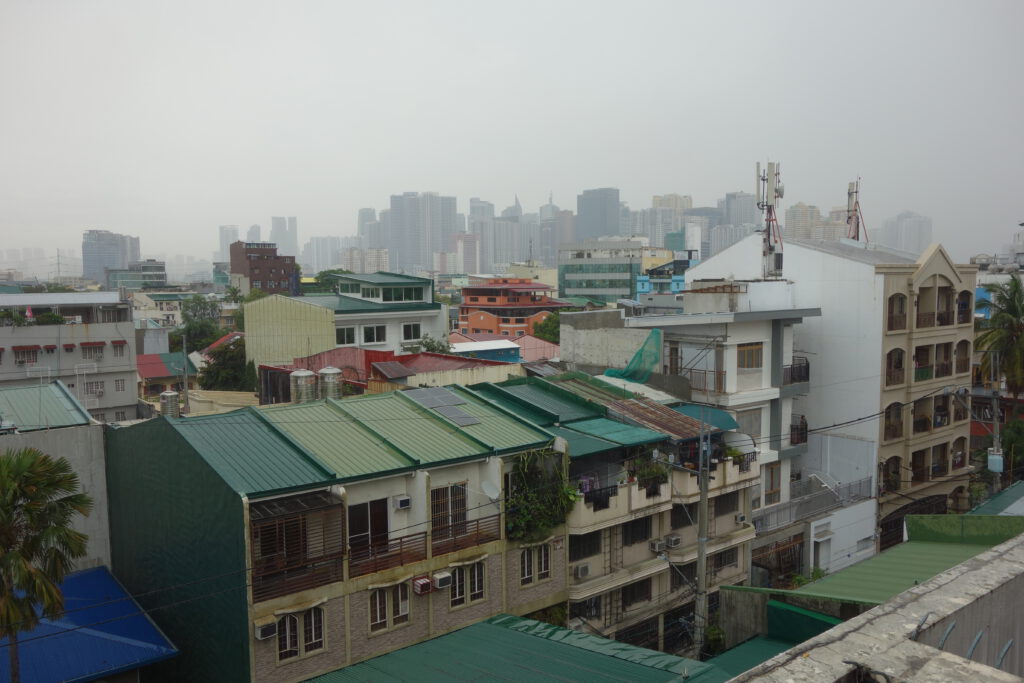
What would you like to give to people in Germany who are thinking about how they can do more for climate justice?
I cannot give them anything other than insights of the reality of climate crisis. The whole citizenry of the Philippines are frontliners to the everyday changes in our planet. The world commends us for being resilient people who are showing smiles and strength despite of adversities. Should we be happy about this?
Although we are grateful for your thoughts and advocacies ,what we need now are the visible actions to help the entire world to recover. There are frontline communities, specially the coastal areas and small islands, whose people are taken advantage of by the so called “development”. They don’t have the voice or resources to stand up for themselves, so I appeal to everyone of you with a kind heart to support them.
Right now is the best time to act. This is a matter of existence.
Help us to reach more people about the everyday reality in our side of the world. Like you, we want to live comfortably and enjoy life without having to be concerned about the risks posed by extreme environments. Please help us in realizing the life we have always wanted to live, a life that shouldn’t even be a fantasy for us since we already live in such a beautiful country.
Want to spread Pablo’s story?
Pablo’s story touched you and you feel like sharing his experience with many more people?
Make sure to also stay connected with us on Instagram, LinkedIn, Twitter and the Telegram channel, where a summary of the keylearning in the form of digital postcards will be incoming every week. By reposting, you are giving a stage to a voice that is rarely heard. Thank you!
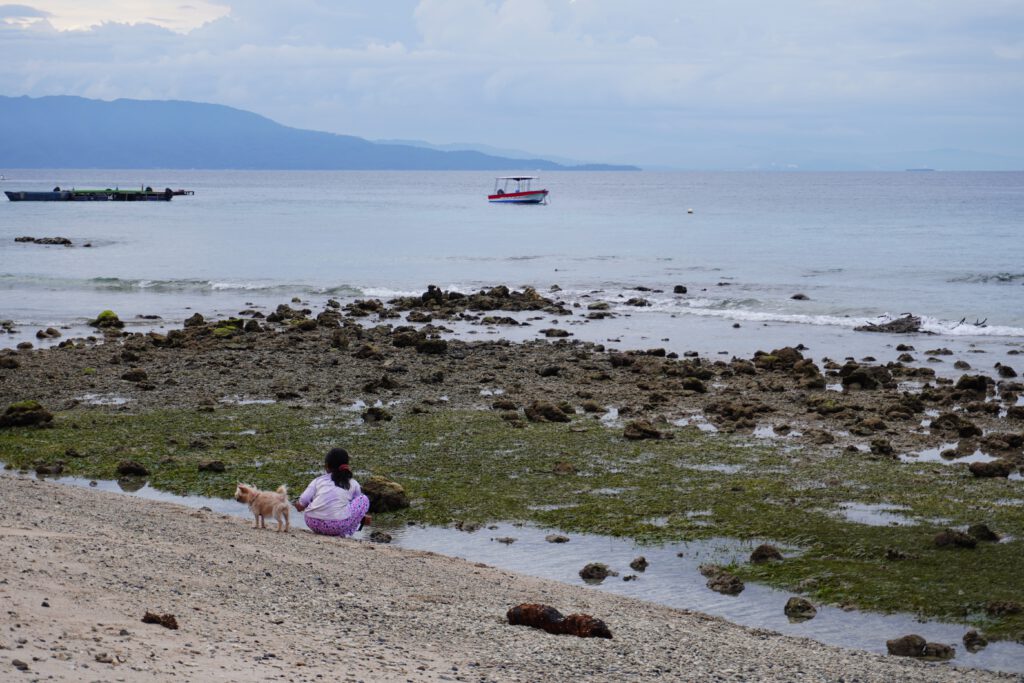
Want to learn more?
You have not subscribed to our newsletter yet and don’t want to miss any news? Then subscribe to our newsletter now!
Want to train your own tranformation skills?
You want to develop your own transformation skills with keynotes, trainings, consultations or bring these skills into your organization? Then feel free to browse through our ClimateMind offerings, because our mission is to bring climate psychology and climate justice into politics and business. Then browse this webpage now!

